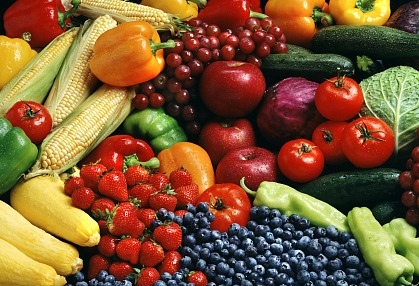
Traditional Chinese Medicine teaches that all disease originates in the gut. At first, that statement seems overly broad. But is it really? In western culture, we hear “you are what you eat.” If you’re eating healthy foods, you have a better chance at being healthy. You are taking in nutrients that your body needs and can easily use to fuel, repair, and maintain its various functions. However, many people use food as recreation or to mask uncomfortable feelings. We are easily seduced by slick marketing schemes and the lure of convenience. Worse, we often look for quick energy to keep on top of our busy lifestyles instead of being more aware and deliberate about how much we complicate our lives.
Over time, our food choices – fast food, soda/sugary drinks, refined carbs – can have harmful consequences. For example, chronic inflammation – and a diet that contributes to inflammation – has been linked to cancer and other major diseases such as heart disease, diabetes, arthritis, depression and Alzheimer’s. One of the best ways to address chronic inflammation is through diet: you can choose foods that support your body’s natural healing ability and reduce or eliminate foods that create a micro-environment where cancer and other diseases can thrive.
In general, you want to follow a diet that is high in fruits, vegetables, nuts, whole grains, fish, and healthy oils. Below is a list of specific foods to avoid, foods to replace/reduce, and 13 tips for making simple changes that can lead to a healthier you!
What to Avoid:
The following foods all contribute to inflammation:
- Fast food restaurants.
- Fried foods, sodas/sugary drinks.
- Refined carbs (e.g., white flour, pasta, breads, crackers, cereals).
- Processed meats (e.g., luncheon meat, hot dogs).
- Sugar (e.g., anything that ends in “ose”, corn syrup, corn sweetener).
Note: Some nutritionists also have people avoid white rice. In Traditional Chinese and Ayurvedic Medicine, white rice is good – if it is paired with spices, beans, and/or something else nutritious.
What to Replace/Reduce:
- Refined sugars with natural sugars (try honey, stevia, maple sugar, agave syrup).
- Processed meats with organic, ethically-raised, minimally-processed meats.
- Red meat with wild-caught (not farm-raised) fish.
- White bread with sourdough and wheat/grain breads.
- Fruits and vegetables sprayed/grown with chemicals with organic fruits and vegetables.
- Regular crackers with nut crackers like Blue Diamond Pecan Nut-Thins.
- Regular cookies with homemade bread or cookies using Pamela’s Gluten-Free Baking Mix or a brand like Tate’s Bake Shop Gluten-Free Ginger Snaps.
- Table salt with Himalayan pink salt or kelp granule blend.
- Boxed cereal with bulk-purchased or homemade granola.
- Foods labeled “low-fat” or “sugar-free.” These are usually processed more or have sugar substitutes like aspartame or sucralose.
Note: Although red wine and coffee (caffeine) contain helpful polyphenols, they also contribute to inflammation. As with all things, moderation is the key. (If you have to ask how much you can drink, you’re probably drinking more than is optimal for you!)
Tips for Making Dietary Changes:
- #1 tip: Make gradual changes. Try adding things before taking things away so you don’t feel deprived. Then start eating a little less of what you normally eat (meat, starch) and begin to add in more of what you don’t usually eat (vegetables). Commit to doing/trying one or two new action steps each week. Don’t get discouraged and don’t try to do it all at once. Chip away where you can.
- Do your food shopping at the perimeter of the store. Avoid the inner food aisles.
- Make the most of what you drink. It’s an easy way to get in your nutrients (or, conversely, to consume sugar or empty calories). Avoid fruit juices and other drinks that are high in sugar. Try smoothies (with plain yogurt!), water that you flavor yourself (sliced lemon, lime, orange, cucumber, even strawberries!), warm or cool herbal teas. Traditional Medicinals is a great tea line.
- Shop organic where it makes the most sense (e.g., thin-skinned fruits and vegetables you don’t peel).
- Try substituting: Pecan-Thins for crackers, Tate’s ginger snaps for cookies, Pamela’s Baking Mix for white flour in baked goods like muffins and pancakes, quinoa for couscous/pasta, honey for sugar, etc.
- Sneak in your fruits/veggies:
- Mince carrots and celery very fine, sauté in olive oil, and then add in pureed tomatoes for your homemade spaghetti sauce.
- The blender is your friend. If you don’t like vegetables, make pureed soups. If you don’t like fruit, make smoothies.
- Don’t like the taste? Try roasting the vegetables in olive oil. Even broccoli tastes good roasted!
- Eat more fresh garlic and ginger. Sauté with vegetables, add to stir-fries and marinades.
- Add herbs to everything. Use fresh and/or dried. Throw out old herbs that have been in the cabinet for more than 6 months to a year. Start by just adding more of what you usually use in cooking. Kitchen spices like basil, thyme, sage, parsley, black pepper, and curry blends all have medicinal qualities. Try roasted sweet potatoes with rosemary or eggs with dill. Don’t serve anything without adding spices to it.
- “Enrobe” rice with beneficial herbs. Make a broth with astragalus root and reishi mushrooms, then use the broth to make rice.
- Try making bone broth. Buy a whole chicken, stick it in crockpot with some water and spices like bay leaves and peppercorns, eat the meat for the first couple of days, then throw in veggies and make homemade chicken broth.
- Introduce yourself to “fun” vegetables. Try spiralizing zucchini or making kale chips.
- Replicate authentic Thai, Japanese, Chinese, Indian, and Mediterranean cuisine which use vegetables as the main course, meat to accent, and lots of healthy spices.
- Craving something sweet? Increase your protein. Our bodies will crave something sweet when we need protein. Eating protein (cheese, nuts, fish/chicken/meat, yogurt, eggs, beans) will stop the craving.
